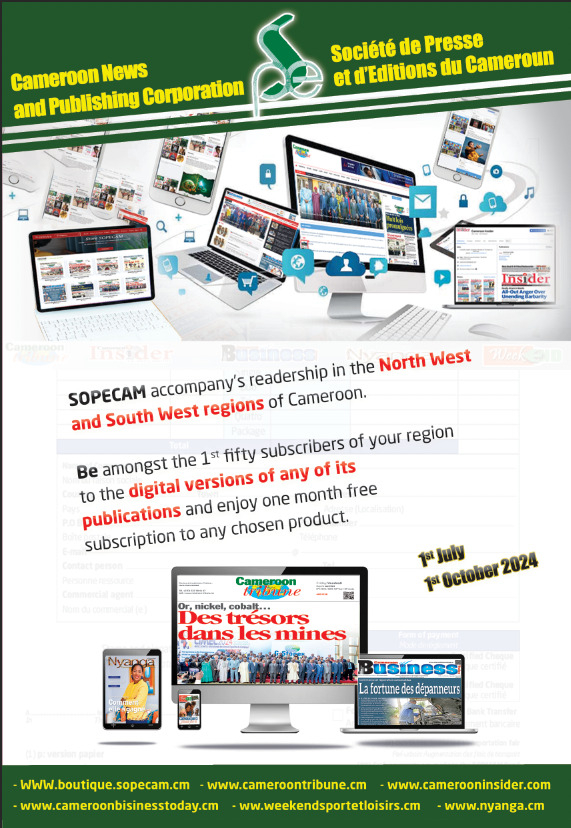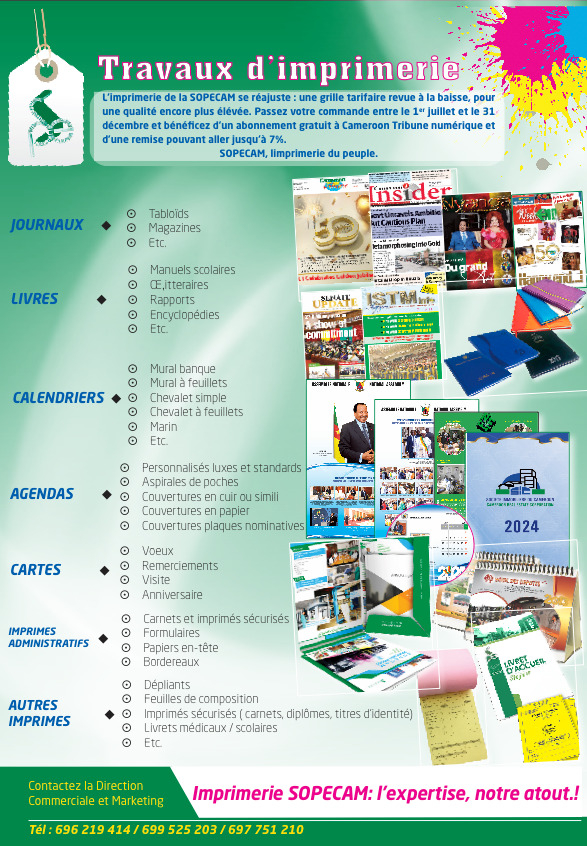Inclusive Education: More Efforts Still Needed
- Par Emmanuel
- 17 oct. 2024 13:12
- 0 Likes
It is continuously dawning on government and its diverse partners that persons with specific needs form part and parcel of the society and are endowed with potentials that if properly harnessed can make them depart from their perceived position of liabilities to key assets and actors in development. Making persons with specific needs useful to themselves and society passes through appropriate education facilitated by suitable infrastructure and qualified personnel.
With this awareness, government is departing from the hitherto specialized education policy to inclusive education policy in order to address the educational and training needs of these persons. It is in view of the concrete realisation of this policy that on October 8, 2024, officials of education and specialized ministries dealing with persons with specific needs and partners validated the National Policy on Inclusive Education in a ceremony presided at by the Minister of Basic Education, Professor Laurent Serges Etoundi Ngoa. The first phase of the implementation of the policy targets the period 2024 to 2028 and estimated to cost about FCFA 100 billion. The State, Regional and Local Authorities are programmed to finance the implementation of the policy up to 65 per cent and development partners to finance 35 per cent. Ministries concerned included Basic Education, Secondary Education, Higher Education, Employment and Vocational Training, Women’s Empowerment and the Family, Social Affairs and Youth Affairs and Civic Education.
It is envisaged that between 2024 and 2028, at least 25 per cent of persons with specific needs will benefit from equitable and quality education, professional competence and the possibility to learn in an adapted, safe and protected environment. For these objectives to be attained, government targets the construction of 1,289 educational structures. Equally, 8,075 teachers are targeted to be trained and the training of 22,248 learners. In concrete terms, Minister Laurent Serges Etoundi Ngoa said the policy is in the form a matrix with strategic interventions, actions and activities to be carried out, costs and the financing plan. The National Policy on Inclusive Education is intended for educational transformation to meet the Sustainable Development Goal 4. It shows measures Cameroon will take to increase the rate of school attendance, taking into considering people with specific needs. According to the Sub-director in charge of Primary Education in the Ministry of Basic Education, Yves Placide Andela, government is inspired by the experience got from the 68 Pilot Inclusive primary schools that were launched in 2017. An evaluation shows that 54 per cent of the objectives were met.
Therefore, government and its partners through the National Policy on Inclusive Education intends to address the discriminations persons with specific needs have been facing in their quest to acquire educational, professional and vocational skills. With the specialized education policy that has been practised up to now, their educational and training milieus were separated from those of people considered normal. Indeed, their isolation came to compound the feeling in them that they are not normal people, created a complex in them and the feeling that society did not really consider them as worth representing anything.
The National Policy on Inclusive Education at all levels of Cameroon’s educational ladder is welcomed. However, what is important is its effective implementation on the field. More efforts are needed to enable the policy attain the set objectives. Efforts to salvage their situation have to start with the identification of persons with specific needs, creation of awareness in them and their immediate environments to understand that these persons are normal human beings and have talents and potentials that can be developed and put ...
Cet article complet est réservé aux abonnés
Déjà abonné ? Identifiez-vous >
Accédez en illimité à Cameroon Tribune Digital à partir de 26250 FCFA
Je M'abonne1 minute suffit pour vous abonner à Cameroon Tribune Digital !
- Votre numéro spécial cameroon-tribune en version numérique
- Des encarts
- Des appels d'offres exclusives
- D'avant-première (accès 24h avant la publication)
- Des éditions consultables sur tous supports (smartphone, tablettes, PC)













Commentaires